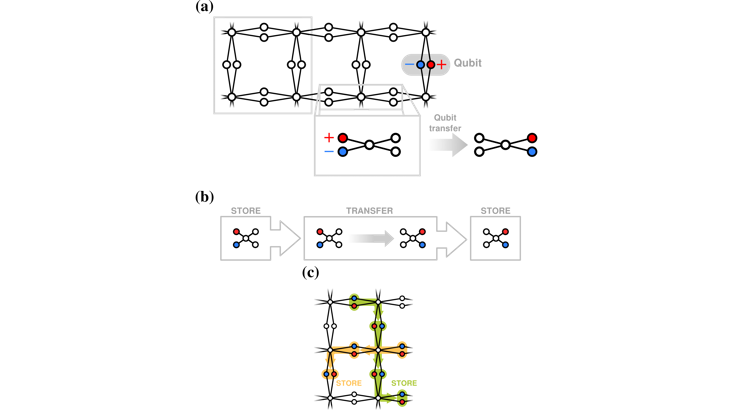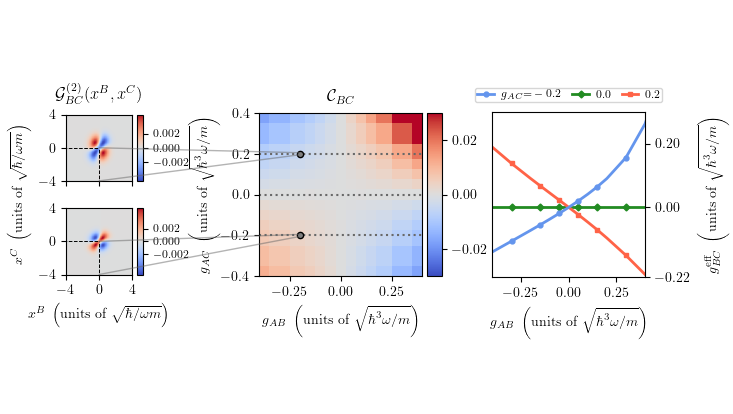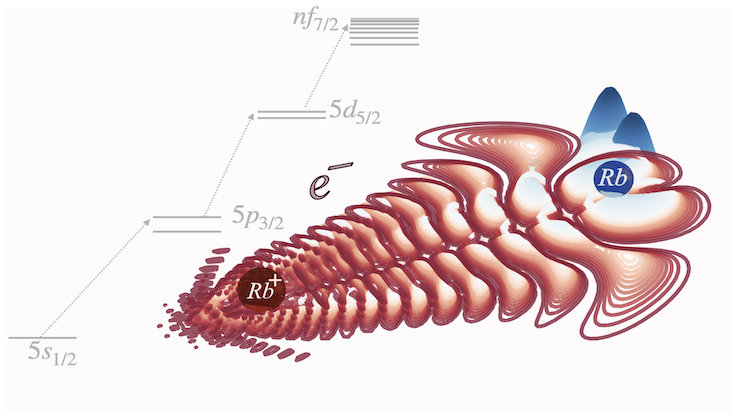Quantum Physics
Quantum Network Transfer and Storage with Compact Localized States Induced by Local Symmetries
19 September 2019

Photo: AG Schmelcher
Quantum computers have the potential to drastically speed up several important computational tasks. The computational strength of quantum computers stems from the fact that they operate on quantum-mechanical states, so-called qubits.
Their physical realization, however, is very difficult, as they are fragile and suffer from interactions with their environment.
In the current work, we demonstrate how qubits can be made more robust against the environment. To this end, we encode a qubit not into a single physical entity such as an atomic spin, but into a pair of two such entities. By performing this encoding in an antisymmetric way the qubit can be protected against a wide range of interactions with its environment. What makes this simple scheme so interesting is that it is remarkably robust against imperfections. We demonstrate this robustness by analyzing the impact of several classes of imperfections which inevitably occur in physical realizations of quantum computers.
We further work out the spatial transfer of the above class of qubits.
Such transfer of qubits is another important ingredient in the realization of quantum computers, where qubits need to be transported between quantum memories and the quantum gates that perform the actual computations. In the current work, we demonstrate several schemes allowing for a faithful transfer of qubits across a specialized quantum network (see Figure 1). We combine this network with the scheme for robust storage of qubits and thereby realize a so-called quantum memory. Our results may thus be of importance in future quantum computers, where both faithful storage and transfer of qubits is needed.


